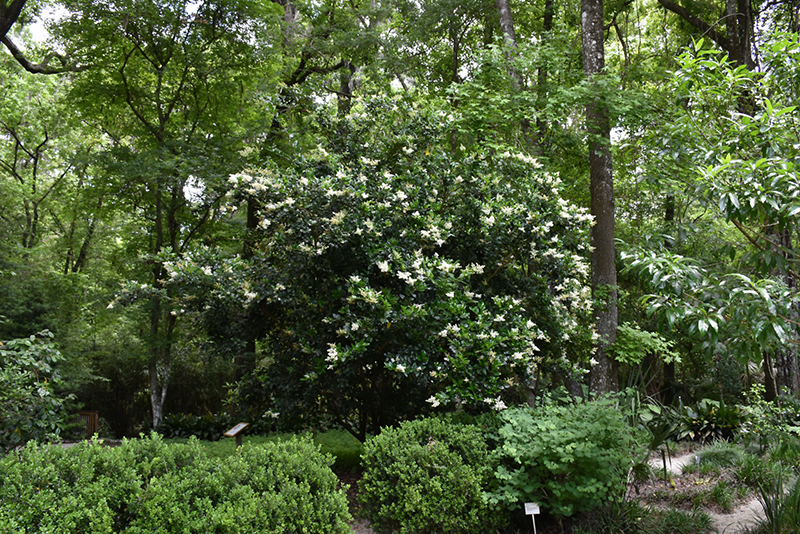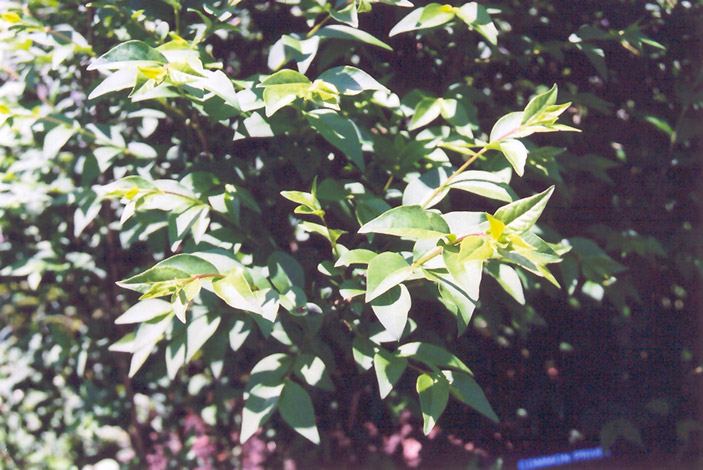Height: 12 feet
Spread: 8 feet
Sunlight:
![]()
![]()
Hardiness Zone: 4
Other Names: European Privet
Description:
A large shrub commonly used in trimmed hedges, takes pruning exceptionally well; densely branched, interesting flowers (if not pruned) followed by black berries in fall; easy to grow, handles polluted city conditions well
Ornamental Features
Common Privet has panicles of lightly-scented white flowers hanging below the branches from late spring to early summer. It has dark green deciduous foliage. The glossy narrow leaves do not develop any appreciable fall color.
Landscape Attributes
Common Privet is a multi-stemmed deciduous shrub with an upright spreading habit of growth. Its relatively fine texture sets it apart from other landscape plants with less refined foliage.
This shrub will require occasional maintenance and upkeep, and can be pruned at anytime. Gardeners should be aware of the following characteristic(s) that may warrant special consideration;
- Disease
Common Privet is recommended for the following landscape applications;
- Hedges/Screening
Planting & Growing
Common Privet will grow to be about 12 feet tall at maturity, with a spread of 8 feet. It tends to be a little leggy, with a typical clearance of 2 feet from the ground, and is suitable for planting under power lines. It grows at a fast rate, and under ideal conditions can be expected to live for approximately 30 years.
This shrub does best in full sun to partial shade. It is very adaptable to both dry and moist locations, and should do just fine under average home landscape conditions. It may require supplemental watering during periods of drought or extended heat. It is not particular as to soil type or pH, and is able to handle environmental salt. It is highly tolerant of urban pollution and will even thrive in inner city environments. This species is not originally from North America.


